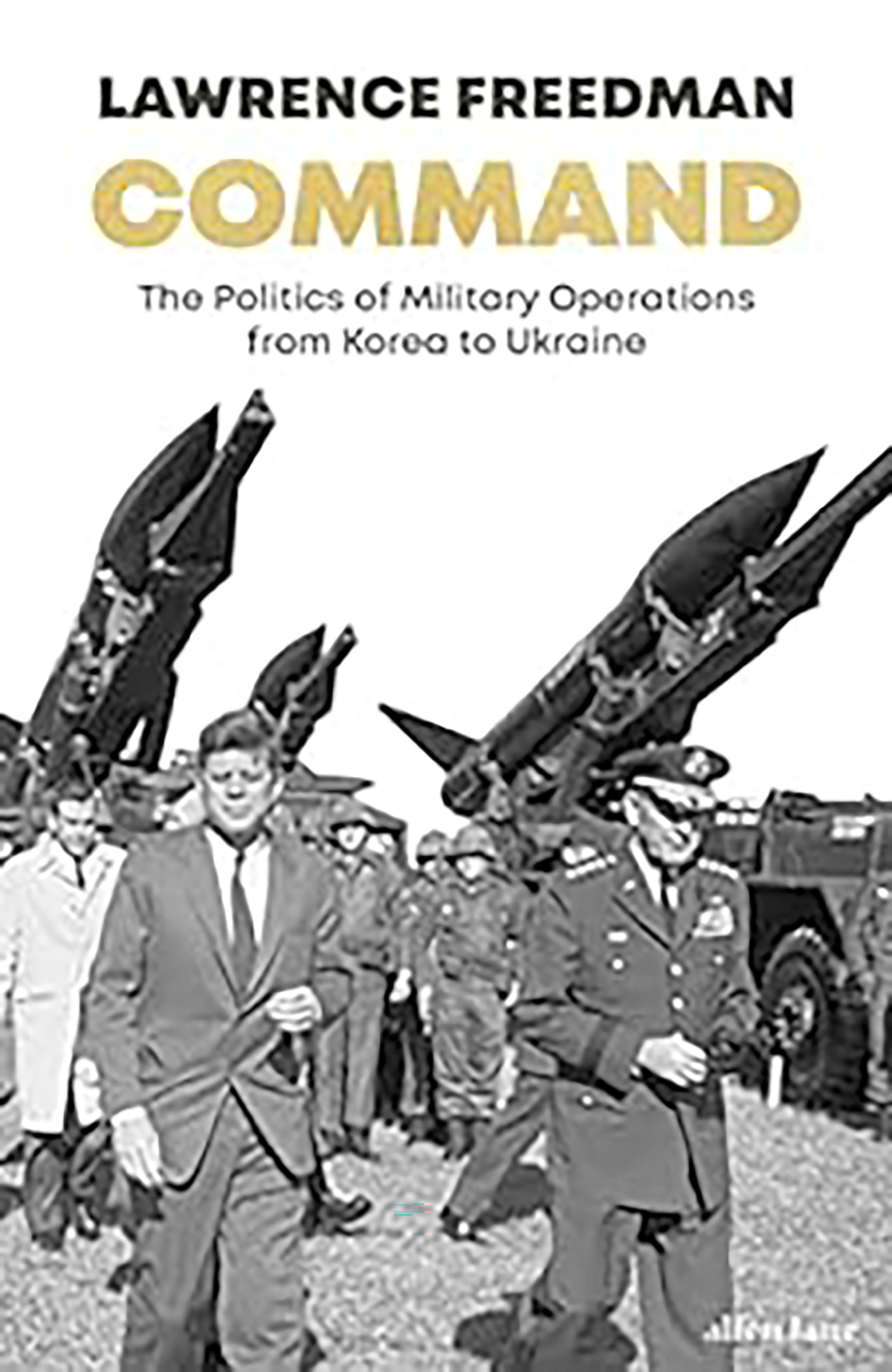Lawrence freedman (London: penguin book 2022.609 pp)
By Iraj Abid
He who wishes to be obeyed must know how to command.
Niccolo Machiavelli, the Prince
Command enables effective wielding of military power. Lawrence Freedman, Emeritus Professor of war studies at King’s College London, explores the dynamics of command in military conflicts in his book Command: The Politics of Military Operations from Korea to Ukraine. Examining fifteen conflicts and crises since World War II, the book delves into the interplay between military and politics and their impact on military operations. It raises critical questions regarding the strategic complexities arising from civil-military relations during conflict situations.
The book begins with a comprehensive examination of the term “command” in military parlance. Freedman establishes that command entails more than issuing and obeying orders; it necessitates responsibility, accountability, and individuals of exceptional character throughout the chain of command. Drawing on insights from military historians and strategists, the author encapsulates the qualities of a good general. He argues that, in addition to strategic acumen and determination, a commander’s coup d’œil, or intuitive grasp of the situation, determines the outcome of a war. Political astuteness carries more weight than courage and tactical abilities. Eisenhower, in the author’s view, exemplified a great commander due to his astuteness rather than heroism (p. 5).
The exercise of command faces challenges on both political and operational fronts. The author explores the issues arising from disharmonious politico-military relations. Ideally, political and military powers should remain separate. In democratic systems, the civilian government bears the responsibility for decision-making, while military command provides advice on the feasibility of objectives. Once the political leadership agrees on a set of aims, the implementation and operational decisions should be entrusted to the commanders.
The dismissal of General Douglas MacArthur by President Harry Truman during the Korean War exposed tensions in the command relationship and raised serious questions about the appropriate course of action for a general asked by the Commander-in-Chief to pursue an illegal or contradictory path. However, the idea of a military officer disobeying the political leader is deemed extremely risky as it presents a potential rationale for a coup d’état (p. 29).
Under the Kennedy administration, the Cuban missile crisis of 1962 highlighted issues related to the operational control of nuclear assets. The nuclear command and control system required a degree of automaticity to address emergencies. However, the specter of nuclear war meant that any accident or misunderstanding could trigger a catastrophe. Truman and Kennedy sought to control field commanders to avoid escalation, while Richard Nixon attempted to exert control to exacerbate tensions in Vietnam in 1972. These examples underscore the complexities of command in different contexts (p. 175).
The French wars in Algeria and Indochina exemplified the disconnect between political leadership and fighting armies, raising rational and ethical questions regarding the decision to engage in futile wars or employ immoral methods to achieve strategic objectives. According to the author, victory can be achieved through extreme means, but military solutions are not always necessary for political struggles (p. 70). Ariel Sharon of Israel serves as a classic example of insubordination towards civilian control. Sharon often circumvented and manipulated the chain of command, believing that orders issued far from the battlefield lacked reliability (p. 152).
Military regimes negatively impact the operational performance of armies, as political direction and military action are consolidated under a single person. This tends to be counterproductive during wars. Examples such as the Falklands campaign in 1982, led by military juntas, demonstrate the detrimental effects of flawed command structures resulting in strategic errors. Personalist dictators like Saddam Hussein consolidated both political and military power. By controlling the official narrative, Hussein created a false impression of victory in the Iraqi nation during the wars of 1980-88 and 1991. However, a regime composed of loyalists led by delusions rendered the command structures dysfunctional, leading to a terminal defeat by the US in 2003.
In fragile states with weak institutions and legal systems like Congo, individuals can build ‘power structures’ around them. In such societies, the armed forces symbolize power, but kinship and loyalty often override competence and professionalism (p. 309). Political divisions, when deepened, can strain or even break the chain of command, as observed during the Russian invasion of Chechnya in 1994. Command structures in military alliances are fraught with complexities as multiple actors with different perspectives and interests must cooperate as exemplified in the conflict between NATO and the Federal Republic of Yugoslavia in 1999. Since 2014, the Russia-Ukraine conflict that started with hybrid tactics has evolved into a full-fledged war in February 2022. The author opines that Putin’s underlying political assumptions led to flawed military assumptions and Moscow failed to achieve its initial objectives in Ukraine (p. 398).
The US war against the Taliban and ISIS demonstrates the increasing complexity of conventional campaigns, particularly in counter-terrorism and counterinsurgency. The changing nature of warfare requires adaptations in command structures, especially considering the rapid emergence of technologies like Artificial Intelligence and new realms of warfare such as space and cyberspace. Freedman’s book provides a well-referenced and excellently written exploration of the topic. The author’s storytelling style keeps the reader engaged throughout the chronicles. It unquestionably deserves a place among the must-read texts on command and military strategy.
Ms. Iraj Abid is a Research Officer at the Center for International Strategic Studies Sindh (CISSS).


